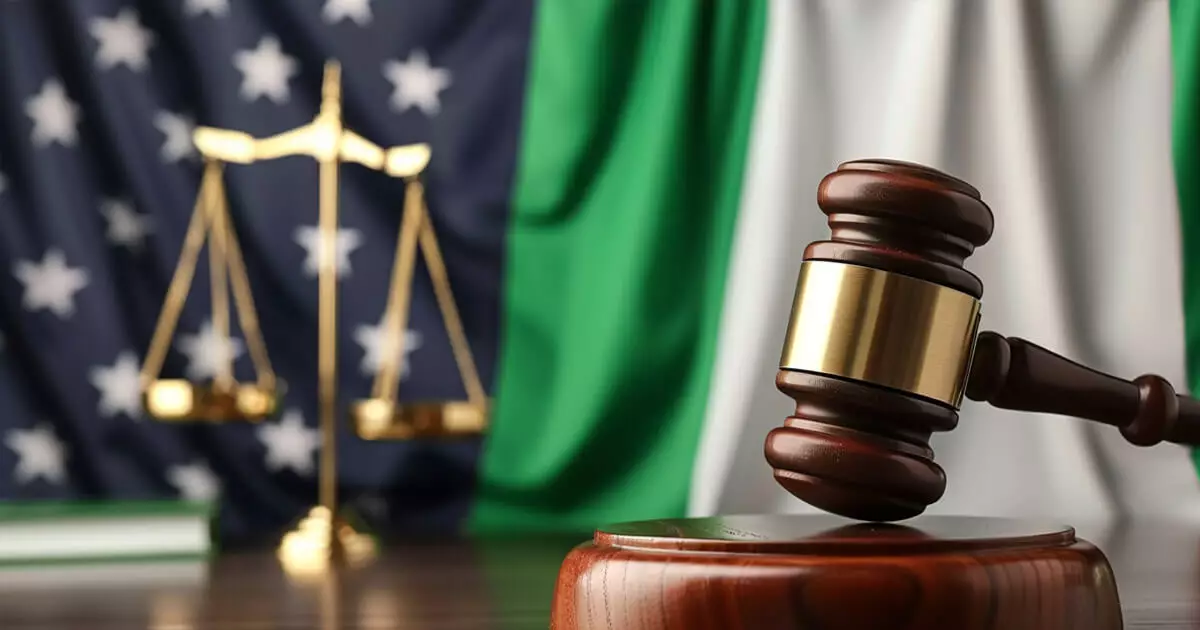In a progressive move to combat the rising tide of cryptocurrency-related crimes and illegal financial activities, the United States and Nigeria have established the Bilateral Liaison Group (BLG). Announced on October 23, this initiative signifies not just a heightened commitment to collaboration between the two nations but also a proactive response to the complexities posed by the expanding crypto landscape. As both countries witness increased cryptocurrency adoption, they confront similar challenges in managing the security and regulatory issues that accompany this digital revolution.
Nigeria’s position as the second-largest adopter of cryptocurrency globally, according to recent data from blockchain analytics firm Chainalysis, is noteworthy. This surge is reflective of a broader trend within Sub-Saharan Africa, where digital finance is gaining traction rapidly. On the other hand, the United States stands as a formidable leader in North America, underpinned by significant institutional investments in cryptocurrencies like Bitcoin and Ethereum. The contrasting yet complementary roles these nations share in the crypto ecosystem underscore the necessity for a bilateral approach to tackle the associated risks.
Cryptocurrencies, while lauded for their capacity to enable cheap and fast transactions across borders, also provide fertile ground for illicit activities. Their decentralized framework frustrates the efforts of regulators and law enforcement, who are often several steps behind those misusing the technology for criminal purposes. Recent insights from TRM Labs highlight a notable decline in illicit crypto funds, which fell to $34 billion in 2023, but the existence of crime in the digital financial space remains a significant challenge. The BLG aims to counter these issues head-on.
The primary objective of the BLG is to serve as a collaborative platform for intelligence sharing and strategic development. This initiative focuses on enhancing investigative capabilities, streamlining regulatory cooperation, and nurturing public-private partnerships. By equipping law enforcement agencies in Nigeria with vital training and tools, the effort seeks to elevate the nation’s ability to investigate and prosecute cybercrimes effectively. Moreover, the introduction of advanced monitoring technologies and blockchain analytics forms a cornerstone of this initiative, allowing for more efficient tracking of transactions that may be linked to illicit activities.
Another aspect of the BLG’s mission includes fostering public awareness about cryptocurrency risks and educational outreach to inform citizens about safe practices in digital finance. By raising public consciousness, the initiative aims to empower individuals in Nigeria to navigate the crypto space more securely. The successful execution of the BLG could set a precedent, paving the way for the United States to establish similar agreements with other countries, thus involving a global coalition in the fight against cryptocurrency-related crime.
The formation of the Bilateral Liaison Group between the United States and Nigeria marks a strategic endeavor to tackle the multifaceted challenges posed by cryptocurrencies. By pooling resources, expertise, and intelligence, both countries are taking a critical step toward enhancing their regulatory frameworks and law enforcement capabilities. As the digital currency sphere continues to evolve, such partnerships will be essential in curbing illicit finance and fostering a safer environment for innovation within the global financial system.

